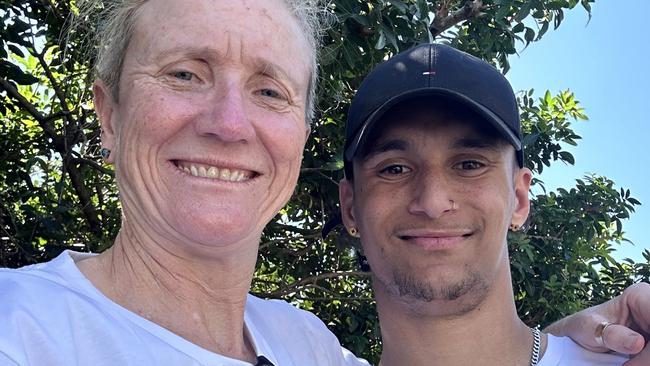Experts are calling for urgent investment in FASD diagnostics and services
FASD experts are calling for more affordable and accessible diagnostic services to stop children with severe brain injuries being put in detention.

News
Don't miss out on the headlines from News. Followed categories will be added to My News.
Experts are demanding affordable and accessible services to diagnose and help children with Fetal Alcohol Spectrum Disorder, a leading contributor to youth crime.
FASD is a developmental condition that occurs when fetuses are exposed to alcohol during pregnancy, causing cognitive, physical and behavioural symptoms.
The Cairns Post has launched Cause and Effect; a campaign calling for free FASD testing for at risk children such as those in custody or care. The series, which aims to educate Queensland about FASD, also calls for a commitment from governments to significantly reduce wait times and costs.
Senior research fellow at the University of Queensland Dr Natasha Reid said the condition meant children with FASD disproportionately ended up in the youth justice system.
“They can have a lot of challenges around impulse control and so they can be more likely to get caught up in offending behaviour,” Dr Reid said.
“They can be very easily led as well, which can mean that they can get in with the wrong crowd and then end up being really easily led into these sorts of pathways as well.
“The earlier we can identify and support people, the better their outcomes are going to be but at the moment we just can’t get in early enough.”
In 2024, a Canadian study found 98 per cent of people with FASD are not diagnosed or have been incorrectly diagnosed with conditions such as autism or ADHD.
Clinical Psychologist Dr Vanessa Spiller said the results in Australia were most likely far worse.
“In Australia, I would suspect that, particularly if you’re an adult with FASD in Australia, that would be worse, far worse,” Dr Spiller said.
Dr Reid called on urgent investment to fully fund child development services, so children can access the help they need during formative years.
“We’re still needing to get more access to assessment and diagnostic services to really support people,” Dr Reid said.
Dr Spiller also called on the state government to provide free screening and diagnostics to known high risk children such as those in protective custody.
“We see an over-representation in two places of these kids with FASD, one is in out-of-home care, they think somewhere up to about 25 per cent of kids in out-of-home care have FASD,” Dr Spiller said.
“The other is any child who’s getting suspended or expelled in kindergarten, preschool or year one and year two.
“They need to be screened and assessed to see if they have some kind of brain injury because, again, we know that this is such a common trajectory for these kids.”
But Dr Spiller said this rarely happens.
“Quite often it’s really difficult even with lots of pushing for carers to get the Department of Child Safety to fund these assessments ... it doesn’t happen,” Dr Spiller said.
Dr Spiller said without transforming the approach to FASD the research suggests police investment or increased detention will make any sustainable difference to youth crime.
Former Supreme Court Justice Stan Jones, who spent 14 years of his life deliberating on matters of youth crime, said he believed governments needed to find a solution to effectively addressing FASD.
“Their (children with FASD) capacity to learn is heavily compromised so there should be ways to change their educations and give them the support the need,” Justice Jones said.
“Kids with these problems need to be with special schools, special teachers, special resources to give them that help.
“It requires governments to be aware of it and do what they can to educate the public of what can happen … because these are the potential future criminals who will be caught up.
“It's not about being tough on crime, but tough on the causes of crime.”
Originally published as Experts are calling for urgent investment in FASD diagnostics and services



